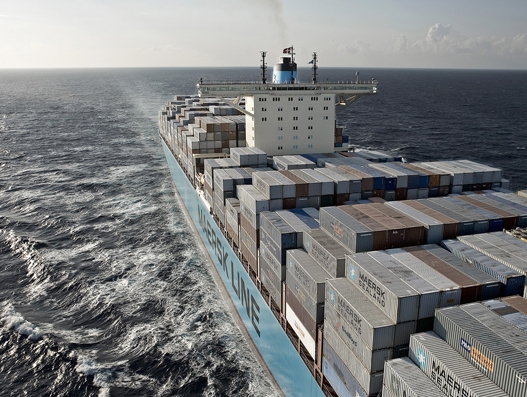
Maersk Line to acquire Hamburg Süd
Dec 02, 2016: Shipping giant Maersk Line to acquire world’s seventh largest container shipping line Hamburg Süd. Maersk Line expects to close the transaction end 2017. The agreement with Hamburg Süd has no financial impact in 2016. With the acquisition, Maersk Line will have container capacity of around 3.8 million TEU (3.1 million TEU) and […]

Dec 02, 2016: Shipping giant Maersk Line to acquire world’s seventh largest container shipping line Hamburg Süd. Maersk Line expects to close the transaction end 2017.
The agreement with Hamburg Süd has no financial impact in 2016.
With the acquisition, Maersk Line will have container capacity of around 3.8 million TEU (3.1 million TEU) and an 18.6 percent (15.7 percent) global capacity share. The combined fleet will consist of 741 container vessels with an average age of 8.7 years (9.2 years).
The acquisition is subject to a satisfactory due diligence, final agreement and subject to regulatory approval in amongst others China, Korea, Australia, Brazil, the United States and the EU. Maersk Line will work closely with the authorities. Maersk Line expects the regulatory process to last until the end of 2017. Until then, Hamburg Süd and Maersk Line will continue business as usual.
Maersk Line expects to communicate further details following the approval of the sales and purchase agreement expected early in the second quarter of 2017.
Hamburg Süd is a leader in the North–South trades. The company operates 130 container vessels with a container capacity of 625,000 TEU (twenty-foot equivalent).
“I am very pleased that we have reached an agreement with the Oetker Group to acquire Hamburg Süd. Hamburg Süd is a very well-run and highly respected company with strong brands, dedicated employees and loyal customers. Hamburg Süd complements Maersk Line and together we can offer our customers the best of two worlds, first of all in the North - South trades,” says Søren Skou, CEO of Maersk Line and the Maersk Group.
“We are proud to join the global market leader Maersk Line. While gaining access to a superior network and systems we will continue the Hamburg Süd brand and business model offering personalized solutions to our shippers and consignees. By joining forces both Maersk and Hamburg Süd will strengthen their product portfolio and cost position to the benefit of their customers,” says Dr. Ottmar Gast, Chairman of the Executive Board of the Hamburg Süd Group.
“Giving up our engagement in shipping after an 80 year-long ownership in Hamburg Süd was not an easy decision for my family. We are very confident, though, to have chosen the best of all possible partners. Maersk will preserve and grow Hamburg Süd and what the brand and the whole organisation and a highly dedicated workforce stand for: reliable and high quality logistical services to our customers,” says Dr. August Oetker, Chairman of the Advisory Board of Dr. August Oetker KG, the management holding company of the Oetker Group.
On September 22, 2016, Maersk Line announced that it would grow market share organically and through acquisitions.
“The acquisition of Hamburg Süd is in line with our growth strategy and will increase the volumes of both Maersk Line and APM Terminals,” says Søren Skou.
Hamburg Süd and Aliança will continue as separate brands and continue to serve customers through their local offices.
“Hamburg Süd and Aliança have competitive and attractive customer value propositions, which we want to preserve and protect. We wish to maintain the personal touch and engagement they offer their customers. In short, Hamburg Süd and Aliança customers will also be Hamburg Süd and Aliança customers in the future,” says Søren Skou.
In the combined network, Hamburg Süd and Maersk Line’s customers will have access to the dedicated end-to-end services provided by Hamburg Süd in the North–South trades as well as the flexibility and reach provided in Maersk Line’s global network. Furthermore, the combined network will enable Maersk Line to develop new products with more direct port calls and shorter transit times.


